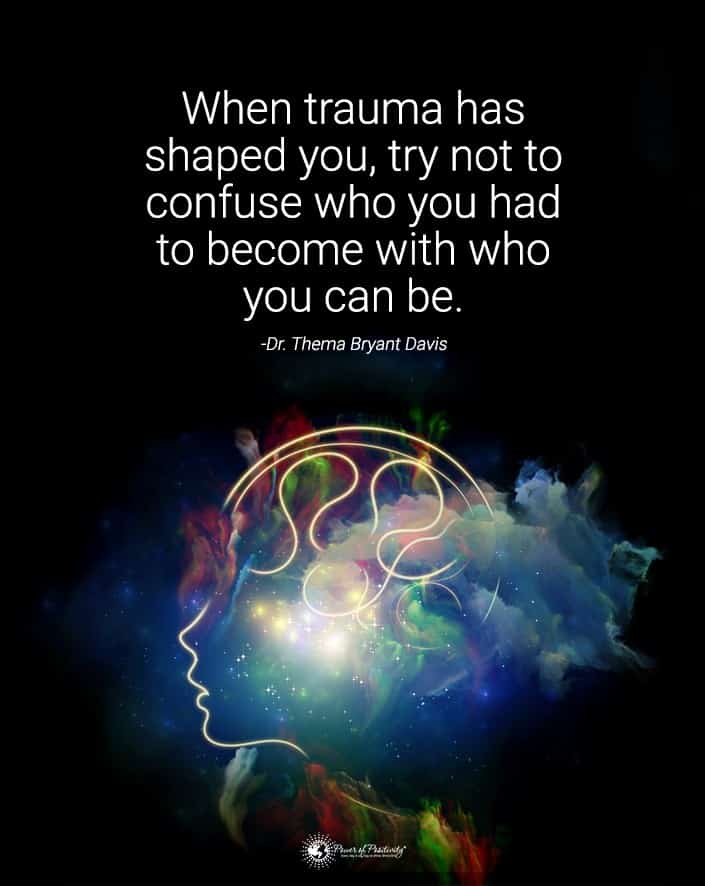You don’t have to accept the role of scapegoat.
Sometimes, our relationships can turn toxic, manifesting in behaviors like scapegoating. If you’ve ever felt unfairly blamed or targeted in a group setting, you might be someone’s unwitting scapegoat.
Scapegoating behavior can happen in almost any relationship. It could be within your family, workplace, or social circle. This article will help you to identify the signs of scapegoating and explore the path to healing and empowerment.
What Is Scapegoating?
Scapegoating is a complex psychological phenomenon where one person or group projects their shortcomings, mistakes, or negative emotions onto another individual. This concept, deeply rooted in historical and psychological contexts, often results in the ‘scapegoat’ bearing the brunt of blame and criticism.
But don’t let that fool you – that blame is not rightfully theirs. Understanding scapegoating is the first step in recognizing if you’re a victim of this behavior and moving toward healing.
Ten Signs You Are Someone’s Scapegoat
Scapegoating can be subtle or overt, but the impact is often deeply felt by the victim. Recognizing these signs is essential in addressing the issue and seeking resolution.
1 – The Scapegoater Always Blames You, Regardless of the Reality
It’s a challenging experience when you find yourself being the go-to person for blame, regardless of whether the fault was yours. This pattern often emerges without warning.
Thus, it makes you feel confused and unfairly targeted. Whether it’s a minor mishap at work or a significant issue in a family setting, your name comes up as the culprit. Moreover, it even happens when you have little (if anything!) to do with the incident.
How to Heal:
First, recognize that this habitual blaming doesn’t reflect who you are. It’s crucial to separate your self-worth from these unfair accusations. Begin by calmly presenting your side of the story in these situations. Use facts and logic to clarify your actual involvement. Remember, it’s not about proving your innocence every time but establishing open, honest communication patterns.
Building a support network is equally important. So, surround yourself with people who understand and appreciate your true character. This support can come from friends or family. It might also come from professional relationships. They can provide a sounding board and help you navigate these situations more resiliently.
2 – Someone Always Tears DoenYour Achievements and Undermines Your Success
Achieving a goal or significant contribution brings a frequent sense of accomplishment. However, if someone consistently overlooks or belittles you, it could be a form of scapegoating.
It can manifest subtly, like a lack of acknowledgment. But it can also happen more overtly through diminishing your efforts.
How to Heal:
Begin by internally acknowledging your accomplishments. Celebrate your successes, big or small, independently of others’ recognition. Keeping a personal record of your achievements and contributions can be empowering. This list can serve as a useful reminder of your worth. It can also serve as tangible evidence when your impact is undermined.
Additionally, seek feedback and acknowledgment from other sources. External validation isn’t the goal, but a balanced perspective on your work and contributions can boost your morale and help build self-confidence.
3 – Scapegoating Makes You Feel Isolated or Excluded from a Group
Isolation or exclusion, especially in environments where you previously felt included, can significantly indicate scapegoating. This setting can create a sense of loneliness. But even worse, it can impact your self-esteem and mental health.
Often, this isolation is not a direct action but a consequence of the negative perception spread by the scapegoater.
How to Heal:
Actively seek connections outside the environment that makes you feel so isolated. Try your hand at some new activities. You might enjoy joining clubs or groups aligned with your interests. You’ll also find new connections doing volunteer work. Even online communities can open doors to positive interactions and friendships.
These new connections can offer a fresh perspective and remind you of your worth and abilities outside the toxic environment.
4 – Scapegoating Subjects You to Unfair Criticism
Unfair criticism is a common sign of scapegoating, especially when it’s out of proportion to the situation or for actions that others are easily excused for.
Of course, that can demoralize you…which is the scapegoater’s exact intent. You may have a sense of walking on eggshells, where you’re constantly worried about making mistakes.
How to Heal:
Develop a resilience to unjust criticism. Reflect on the feedback and identify if there’s any constructive element to it. If not, remind yourself that this criticism is more about the other person’s perceptions and issues than your abilities.
Seeking objective feedback from others can also provide a more balanced view of your actions and decisions, helping you grow and improve where necessary.
5 – The Scapegoater Will Often Dismiss Your Opinions and Thoughts as Foolishness
When your opinions or ideas are consistently dismissed or belittled as “foolish,” it’s a clear sign you are a scapegoat. This form of scapegoating often occurs in the workplace when colleagues feel threatened by a rising star.
This dismissal of your contributions can make you question your thoughts. Besides that, it may stifle your willingness to share or participate. As a result, it can hinder your growth. That’s especially harmful to your career aspirations.
How to Heal:
Assertiveness is key. Communicating your thoughts and opinions and standing your ground in discussions can reinforce your value in any conversation. Remember that being assertive doesn’t mean being aggressive. Rather, it’s about expressing yourself clearly and respectfully, even when others may not agree.
6 – You’re the Target of Passive-Aggressive Behavior
Passive-aggressive behavior, like backhanded compliments, can indicate scapegoating. So can subtle jabs or non-verbal microaggressions like eye-rolling or sighing.
These behaviors can be confusing and hurtful. That’s because the scapegoater intentionally wraps the insult in a veneer of politeness or humor.
How to Heal:
Confront passive-aggressive behavior calmly and directly. Addressing these behaviors when they occur can often reduce their frequency. Expressing how these actions make you feel without becoming confrontational is important. In rare cases, the individual may not be aware of how you perceive the behavior. They may completely lack self-awareness and empathy.
7 – You Experience Unjustified Hostility
Experiencing unexplained hostility or anger from others, particularly if this is a new development or seems disproportionate, can indicate that you’re being scapegoated.
This hostility can present itself in a variety of forms, from verbal attacks to more subtle aggression. These are not okay, and it’s time to stand your ground.
How to Heal:
Maintaining your composure in the face of hostility is crucial. Avoid reacting defensively or with aggression, as this can escalate the situation.
Instead, seek to understand the root of this hostility, if possible. In cases of persistent hostility, consider seeking mediation or the intervention of a third party. In a personal relationship, you can seek the help of a professional counselor to have an open discussion.
8 – Scapegoating Holds the Scapegoat to Different Standards
Do you find that the expectations and standards applied to you are consistently higher or more demanding than for others? If so, this unfairly raised bar could be a form of scapegoating. It often leads to a feeling of being set up to fail or being unfairly judged.
How to Heal:
Document instances where you notice a disparity in standards. Keeping a record of these instances can be useful in discussing fair treatment and expectations.
It can also help identify patterns and provide evidence if you need to escalate the issue to higher authorities in the workplace. Documentation may also help if you seek external advice.
9 – Your Role or Contributions Change Frequently
If your role or responsibilities shift often – and put you in a position where failure is more likely, you could be a scapegoat. Similarly, scapegoating is like minimizing, editing, or downplaying contributions. This instability can be disorienting. It can also undermine your confidence and performance within the family or workplace.
How to Heal:
Regularly seek clarity about your role and responsibilities. If changes are made, ask for clear explanations and document these instances. Understanding the rationale behind these changes can help you adapt and provide insights into the broader dynamics.
10 – You Feel Constantly Anxious or Stressed in Specific Environments
Persistent feelings of anxiety or stress, especially in particular environments or around certain individuals, without a clear other cause, can be a sign of scapegoating. This constant state of tension can significantly impact your mental and physical health.
How to Heal:
Prioritizing your mental health is crucial. Engaging in self-care practices, including mindfulness, exercise, or hobbies that bring you joy, can provide a much-needed respite. Consider professional counseling to help you manage and understand your feelings in more severe cases. A counselor can help you come up with good strategies to cope with these challenging environments.
Final Thoughts on Identifying and Healing From Scapegoating
Recognizing the signs of scapegoating is crucial for your mental and emotional well-being. Empower yourself with knowledge, assertiveness, and self-care. Remember, you have the strength to navigate these challenges and emerge healthier and more resilient. You need not settle for playing the scapegoat role once you realize you have become a victim.

















 Community
Community

